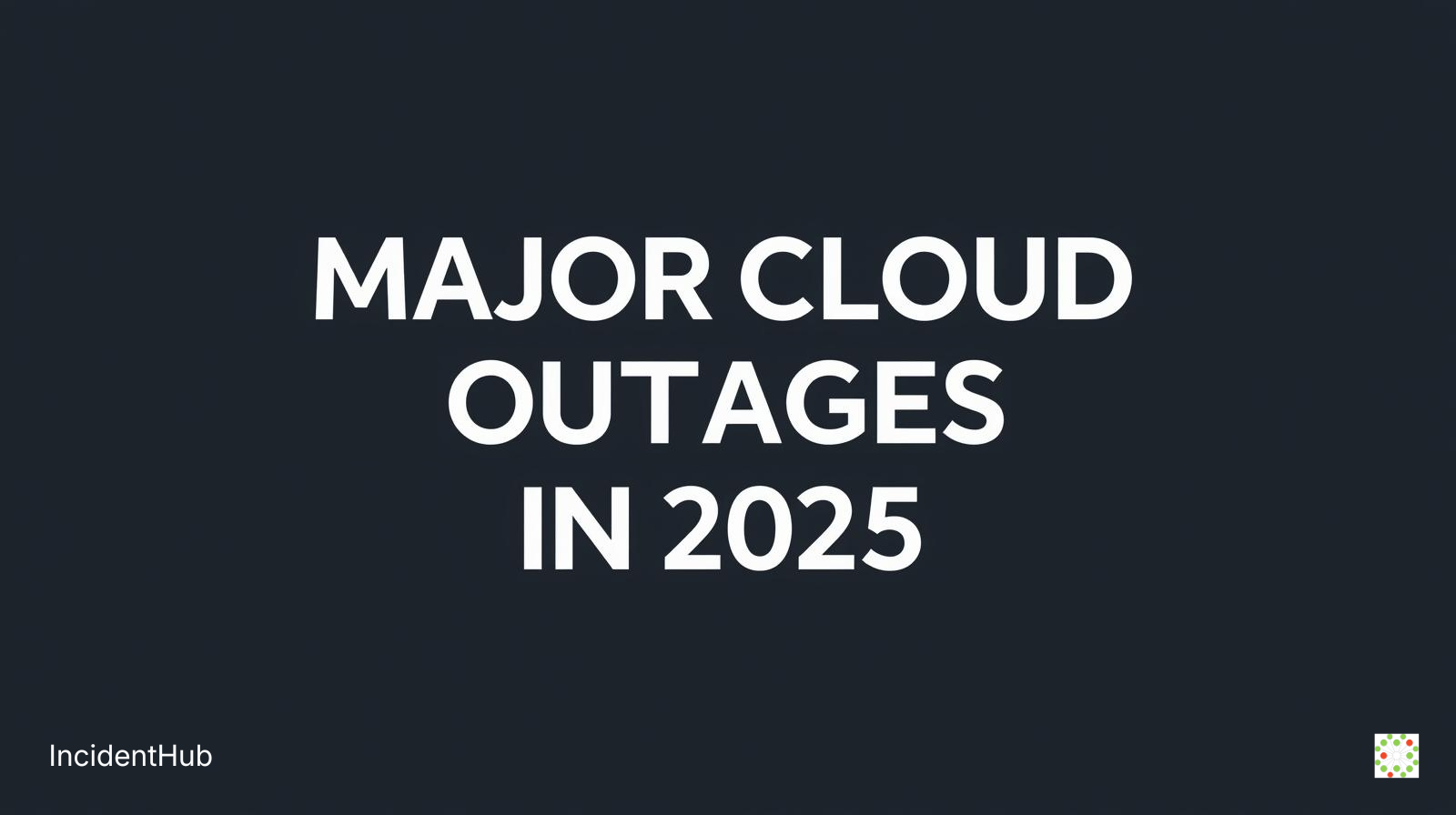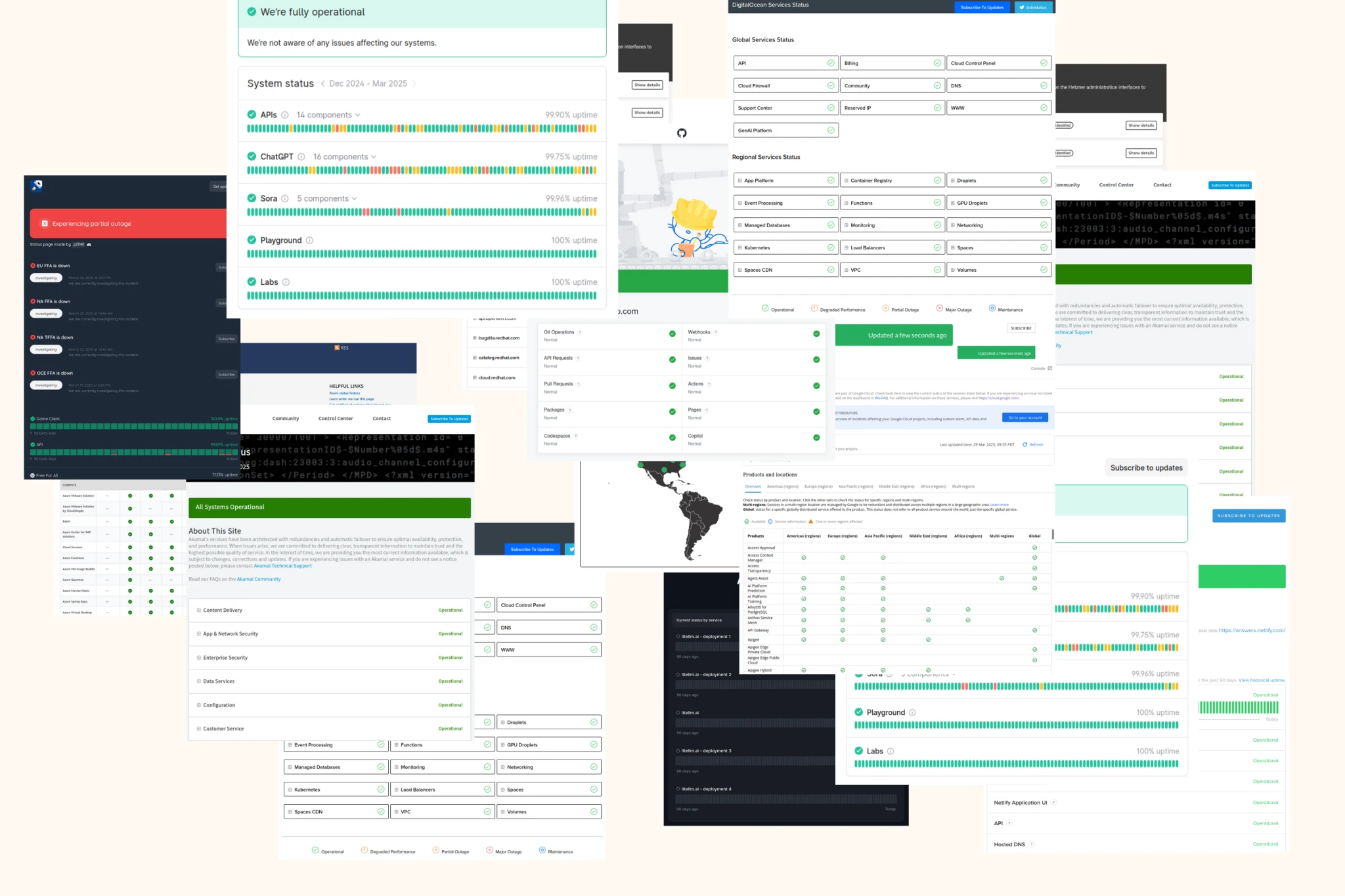The Definitive AWS Outage Report 2025: Reliability Analytics and Cascade Impact
Introduction
Amazon Web Services remains one of the most popular cloud providers, with 200+ services in 39 regions across the world. Like all providers, they have their share of outages.
In 2025, IncidentHub detected 38 AWS outages, of which the one on October 20th had the most widespread impact affecting hundreds of SaaS providers simultaneously. Payments were disrupted, students lost access to classrooms, developer tooling degraded, and some IT teams experienced alerting gaps.
In this post we look at the reliability of AWS in 2025 based on their own publicly available status page data aggregated by IncidentHub, with a deeper analysis of the cascading impact of the October 20th outage.




